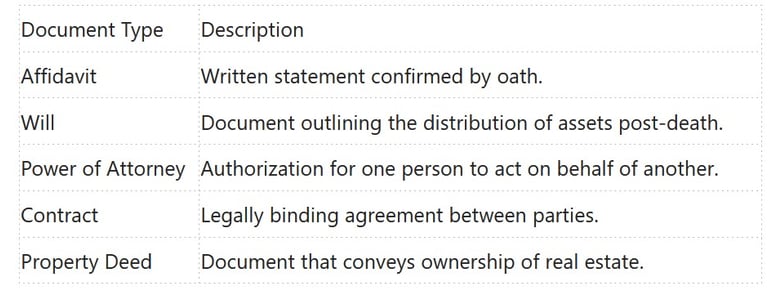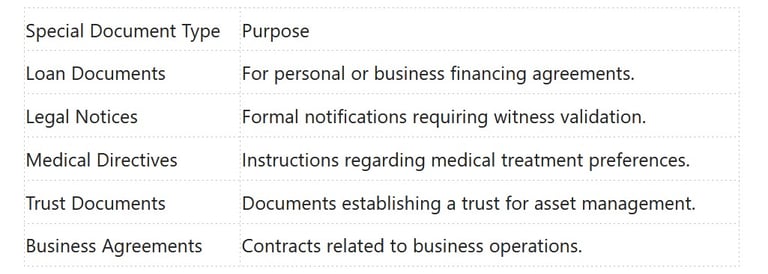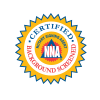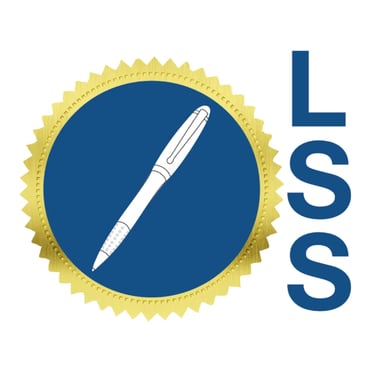General Notary Document Preparation
GENERAL NOTARY WORK
Frank L Coxx
3/7/20256 min read


Document preparation is a vital step in ensuring your notarial needs are met efficiently and accurately. In this guide, you will learn about the crucial aspects of general notary document preparation, including the types of documents you may encounter, the proper procedures for notarization, and how to avoid common pitfalls. By understanding the best practices and legal requirements involved, you can navigate this process with confidence and ensure your documents are prepared correctly for their intended purpose.
Understanding Notarization
Before you engage in any process involving legal documents, it's vital to understand notarization. This act protects both parties by ensuring that the signer is who they claim to be and that they are signing willingly. Notarization adds a layer of trust and validity to documents, making them enforceable in a court of law.
Definition and Purpose
On a basic level, notarization refers to the official act of a notary public who verifies the identity of the signer, acknowledges their signature, and ensures their understanding of the document. The purpose is to prevent fraud while providing assurance in legal transactions.
Types of Notary Documents
Types of notary documents include various forms that require authentication. Here are some common examples:
Affidavits
Wills
Powers of Attorney
Contracts
Property Deeds
Thou may find yourself needing notarization for other special documents as well.
The types of notary documents serve different needs and secure various agreements between parties. Understanding the distinctions can be beneficial. Some other notary documents you may encounter include:
Loan Documents
Legal Notices
Medical Directives
Trust Documents
Business Agreements
Thou should be prepared to seek notary services when handling important documents.
The Role of a Notary Public
It is crucial to understand that a Notary Public serves as an impartial witness in the signing of documents. They help ensure that your interests are protected by verifying identities and preventing fraud, making their role vital in various legal transactions.
Responsibilities and Duties
Below are the primary responsibilities and duties of a Notary Public. You will find they include verifying the identity of signers, witnessing signatures, administering oaths, and maintaining a record of all notarial acts performed. These tasks help establish the authenticity and legality of your documents.
Qualifications and Training
The qualifications and training required for a Notary Public can vary by state. You typically must complete an application process, which may include background checks, and sometimes attend an educational course to understand notarial laws and procedures.
Role requirements often include being at least 18 years old, a legal resident of the state in which you intend to serve, and having no felony convictions. Many states also stipulate that you take a formal training course, which can equip you with the knowledge needed to perform notarial functions effectively. Understanding these qualifications helps you to better navigate the process should you consider becoming a Notary Public.
Document Preparation Process
Some may overlook the document preparation process, but it is imperative for ensuring your documents are valid and accurate. By following a structured approach, you can streamline your notary services and provide clients with reliable assistance. This will not only create a smoother experience for you and your clients but also foster trust in your notarial role.
Gathering Necessary Information
Process begins with gathering necessary information to effectively prepare the documents you will be notarizing. You should collect all relevant details from the parties involved, ensuring that you have their names, addresses, and any required identification. This information is vital to accurately complete the documents and fulfill your notarial duties.
Completing Required Forms
One important aspect of document preparation is completing required forms. You are responsible for filling out various legal documents accurately to avoid future complications. Each form has specific guidelines that must be adhered to, ensuring compliance with local regulations and standards.
At this stage, your attention to detail is paramount. You should review the forms thoroughly for any potential errors or omissions, as even minor mistakes can lead to significant issues later on. Additionally, ensure that you provide clear instructions to your clients, guiding them on where to sign and what information to include. Taking the time to complete required forms diligently will ultimately enhance your efficiency and reputation as a notary public.
Common Notary Documents
Now, it's necessary to be aware of the common documents that require notarization. These documents often include contracts, deeds, mortgages, and important legal forms related to property ownership or personal affairs. For more information on what documents need to be notarized?, you can visit this resource.
Affidavits and Declarations
Against personal or legal disputes, affidavits and declarations serve as sworn statements that provide necessary facts in court or other legal proceedings. These documents can hold you accountable and are often used in civil lawsuits, signifying the truth of what you assert.
Powers of Attorney
An necessary legal instrument, a Power of Attorney (POA) allows you to designate someone to manage your affairs when you are unable to do so. This can cover financial transactions, healthcare decisions, and other critical matters that necessitate a trusted individual to act on your behalf.
Affidavits serve as a reliable way for you to establish the legal authority granted under a Power of Attorney. By having your POA notarized, you provide assurance to banks, hospitals, and other institutions that your designated representative can make decisions and take action in your absence. This adds a layer of security and validation to your legal arrangements, ensuring your affairs are in capable hands.
Best Practices for Notary Document Preparation
For effective notary document preparation, you should follow best practices that ensure efficiency and professionalism. Notaries must stay informed about the latest regulations and procedures. For guidance on Providing and Preparing Legal Documents, utilize reliable resources and tools, and build strong communication with clients to clarify their needs and expectations.
Ensuring Accuracy and Completeness
Below, you will find that ensuring accuracy and completeness in document preparation is vital for a smooth notarization process. Double-check all information provided by your clients, including dates, signatures, and notarial wording. Utilize checklists to confirm that all necessary documents are gathered and that each step of your process is followed to guarantee no details are overlooked.
Legal Compliance and Ethical Considerations
Best practices in legal compliance and ethical considerations should guide your document preparation. You are responsible for understanding the specific notary laws in your jurisdiction, ensuring that the documents meet all legal requirements. Maintaining confidentiality and avoiding unauthorized practice of law are also key aspects to consider during this process.
Plus, as a notary, you must adhere to ethical standards that promote trust and integrity in your work. This means you should never offer legal advice or draft documents unless specifically allowed. By respecting confidentiality and upholding state regulations, you not only protect your clients but also reinforce the credibility of your services within the community.
Challenges and Solutions in Document Preparation
Not all document preparation processes are seamless; various challenges can arise, such as misinterpretations of legal language or incomplete documentation. Recognizing these obstacles helps you develop efficient solutions, ensuring your notarial tasks are executed smoothly. By staying informed and organized, you can minimize errors and create a more streamlined experience for yourself and your clients.
Common Errors and Misconceptions
For many notaries, common errors often stem from misunderstandings about legal requirements or oversight in document details. Misconceptions about what constitutes a valid notarization can lead to significant complications. Ensure you thoroughly educate yourself on these elements to enhance your document preparation process.
Tips for Overcoming Obstacles
After encountering challenges, implement these effective strategies:
Stay organized by maintaining a checklist for document preparation.
Consult with legal professionals when uncertain about requirements.
Use reliable software or templates to help avoid formatting errors.
Any of these approaches will significantly aid you in navigating the complexities of document preparation.
Preparation for document challenges often requires proactive measures. You can foster a success-oriented mindset by being diligent with the details and preemptively seeking out potential pitfalls. Including these strategies in your routine may enhance your efficiency in document preparation:
Attend workshops to stay updated on regulations and best practices.
Network with other notaries to share insights and common challenges.
Regularly review and adapt your processes to improve accuracy.
Any consistent practice of these tips will empower you to overcome obstacles and boost your confidence as a notary public.
To wrap up
Summing up, understanding general notary document preparation is vital for ensuring that your important documents are executed correctly and legally binding. By familiarizing yourself with the various types of notarized documents and the steps involved in the preparation process, you can effectively navigate any legal requirements and avoid potential pitfalls. It's important that you take the time to engage with reputable notary services to ensure a smooth and efficient process tailored to your specific needs.








